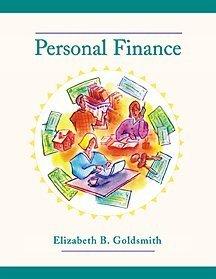Question
1. Required returns are? the lowest possible return that an investor would be happy to earn. the return that an investor actually earns. the return
1. Required returns are?
the lowest possible return that an investor would be happy to earn.
the return that an investor actually earns.
the return an investor believes she will earn.
the legally obligated return in a contract.
none of the other answers are correct.
2. Which of the following is false?
All else equal, higher dividends will lead to higher stock values.
All else equal, higher growth rates in earnings and dividends will lead to higher stock values.
All else equal, higher required rates of return will lead to higher stock values.
None of the other answers is false.
TRUE OR FALSE FOR REST
1. Required and expected returns are used to make investment decisions, while realized returns are used to evaluate investment performance.
2. One of the most fundamental investment decision rules is to make an investment (or buy it) if its required return is greater than its expected return.
3. Conceptually, required returns are linked to values for assets, while expected returns are linked to asset prices.
4. One of the primary differences between asset prices and asset values is that you can actually buy or sell the asset at the price, while the value is a more theoretical number (it's what you think the price should be).
5. Common Stock dividends are determined by the par value of the stock and the contractual dividend rate.
6. Common stock ownership typically carries with it the right to vote on important matters of corporate policy, while preferred stock ownership does not.
7. For any given firm that has both preferred stock and common stock, the common stock will always be safer than the preferred stock since it has much higher potential returns.
8. One reason firms like to borrow money (even though borrowing adds risk to the firm) is that the interest on borrowed money is fully tax deductible, while dividend payments to equity investors are not fully deductible.
Step by Step Solution
There are 3 Steps involved in it
Step: 1

Get Instant Access to Expert-Tailored Solutions
See step-by-step solutions with expert insights and AI powered tools for academic success
Step: 2

Step: 3

Ace Your Homework with AI
Get the answers you need in no time with our AI-driven, step-by-step assistance
Get Started


